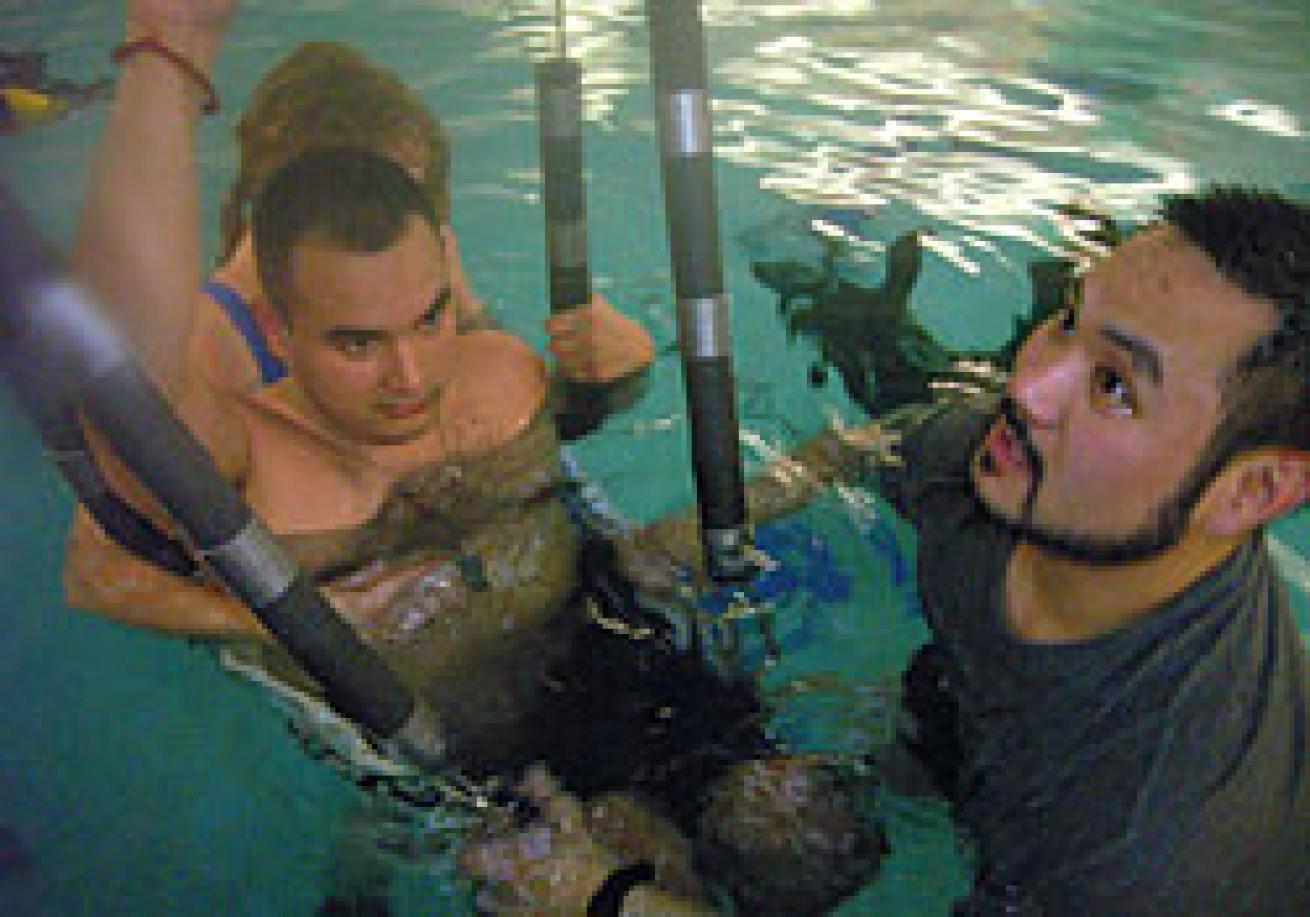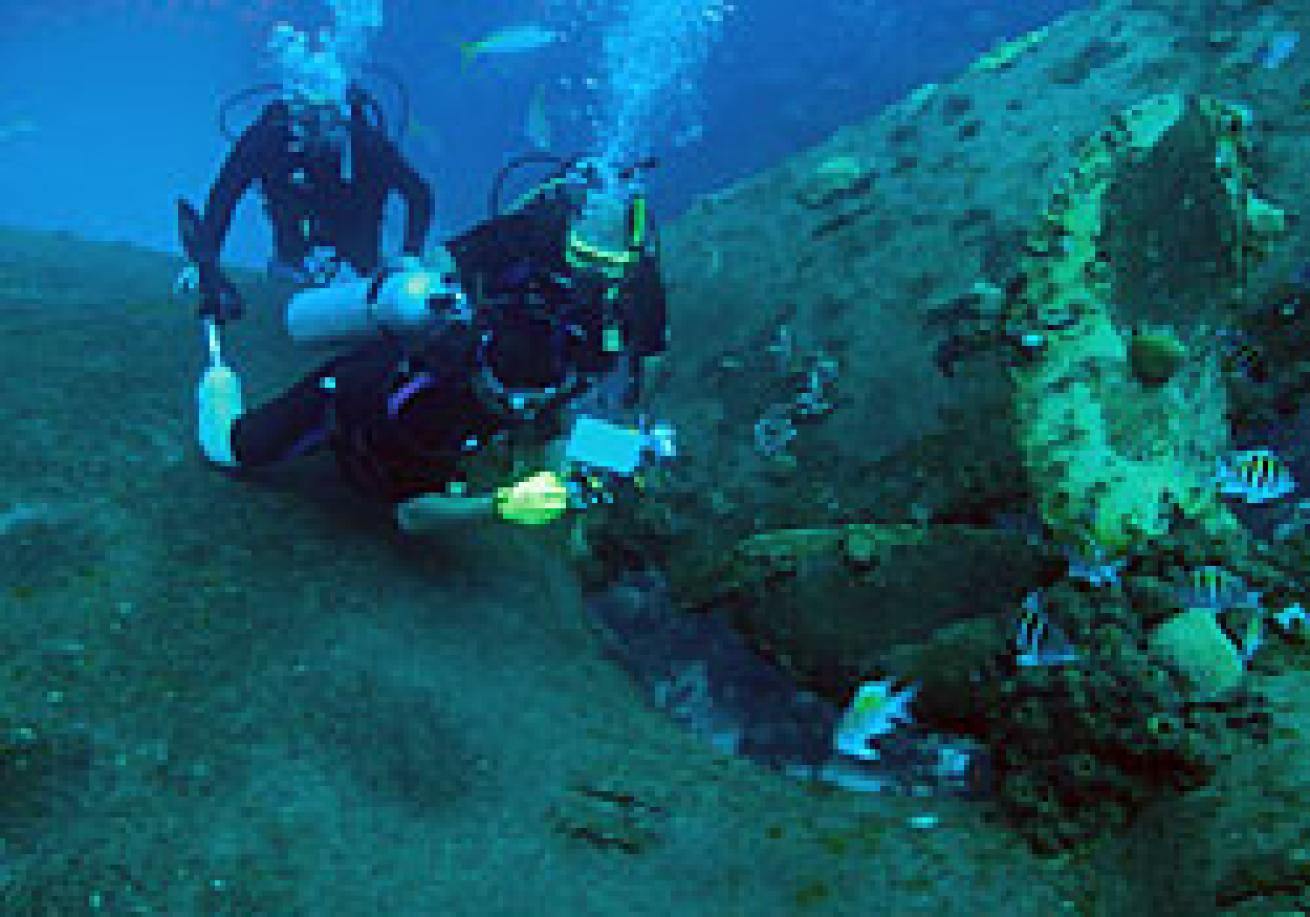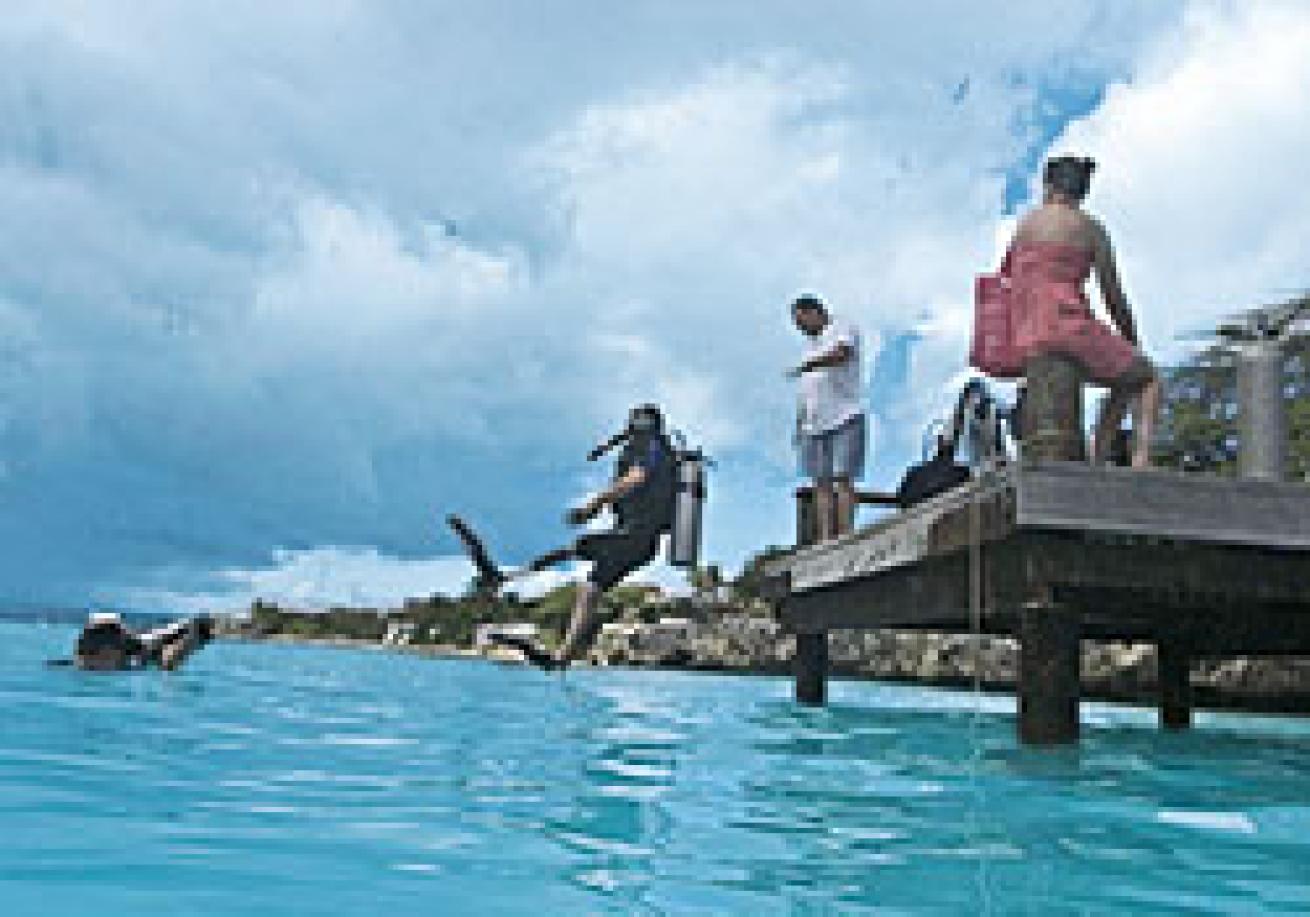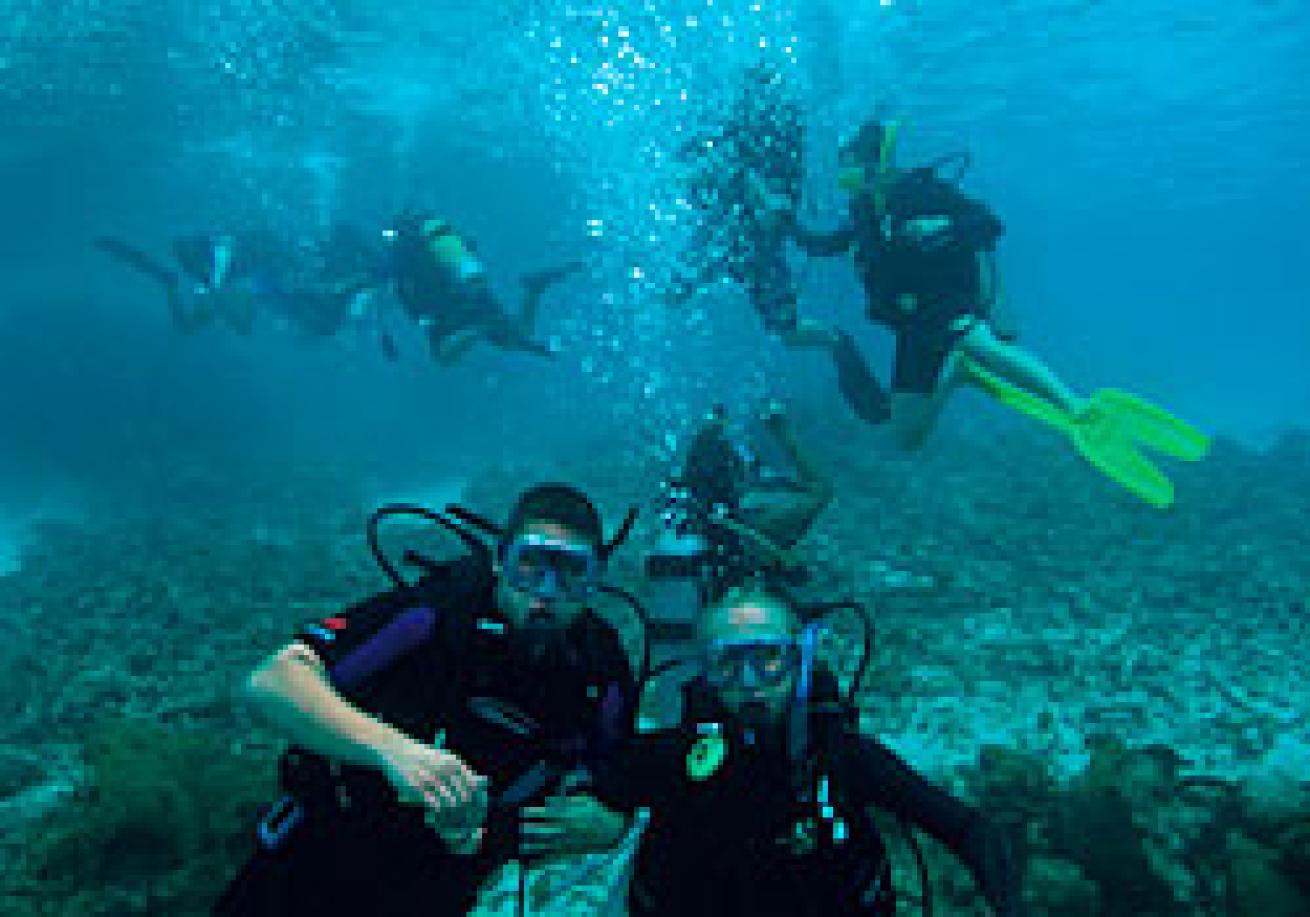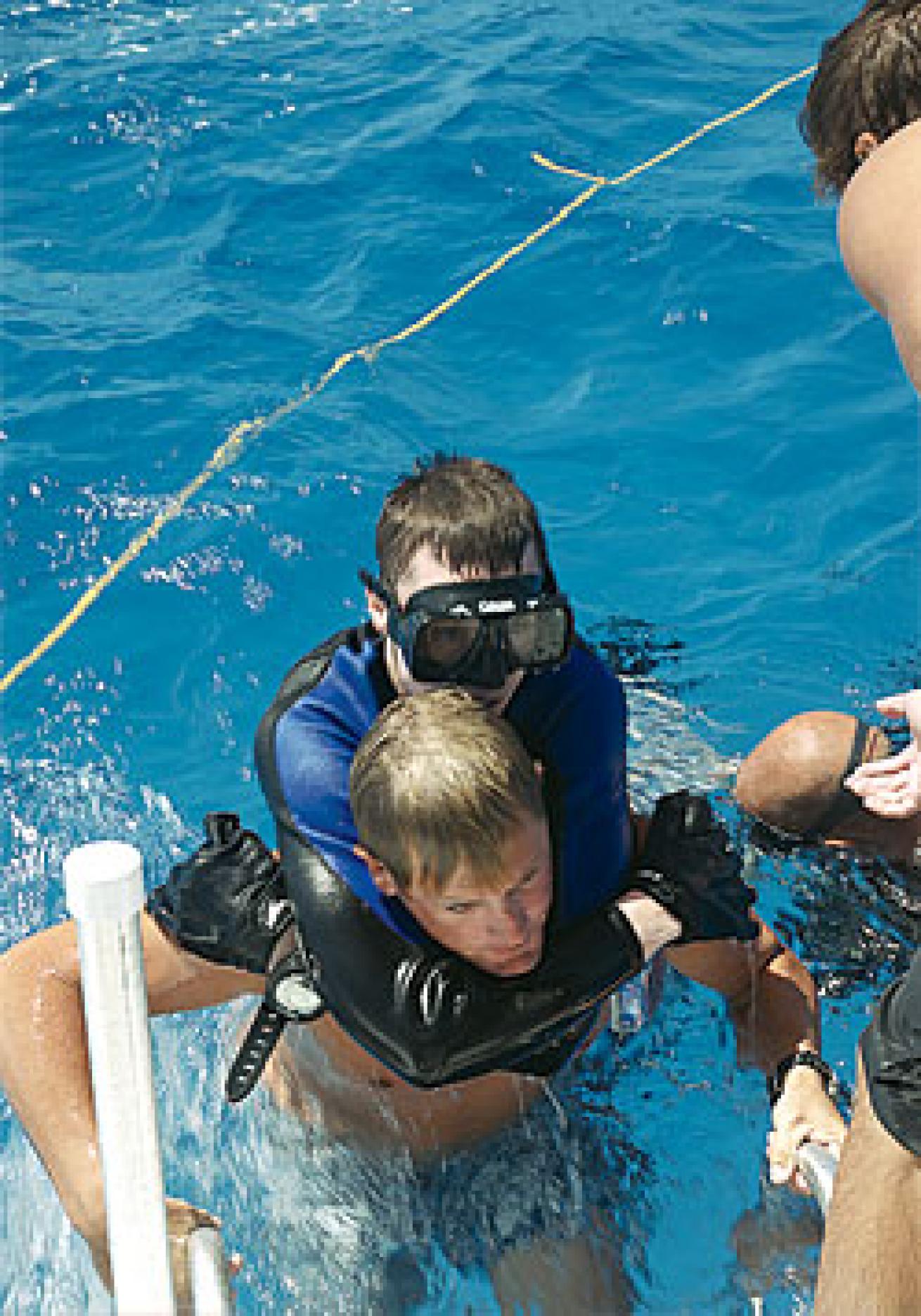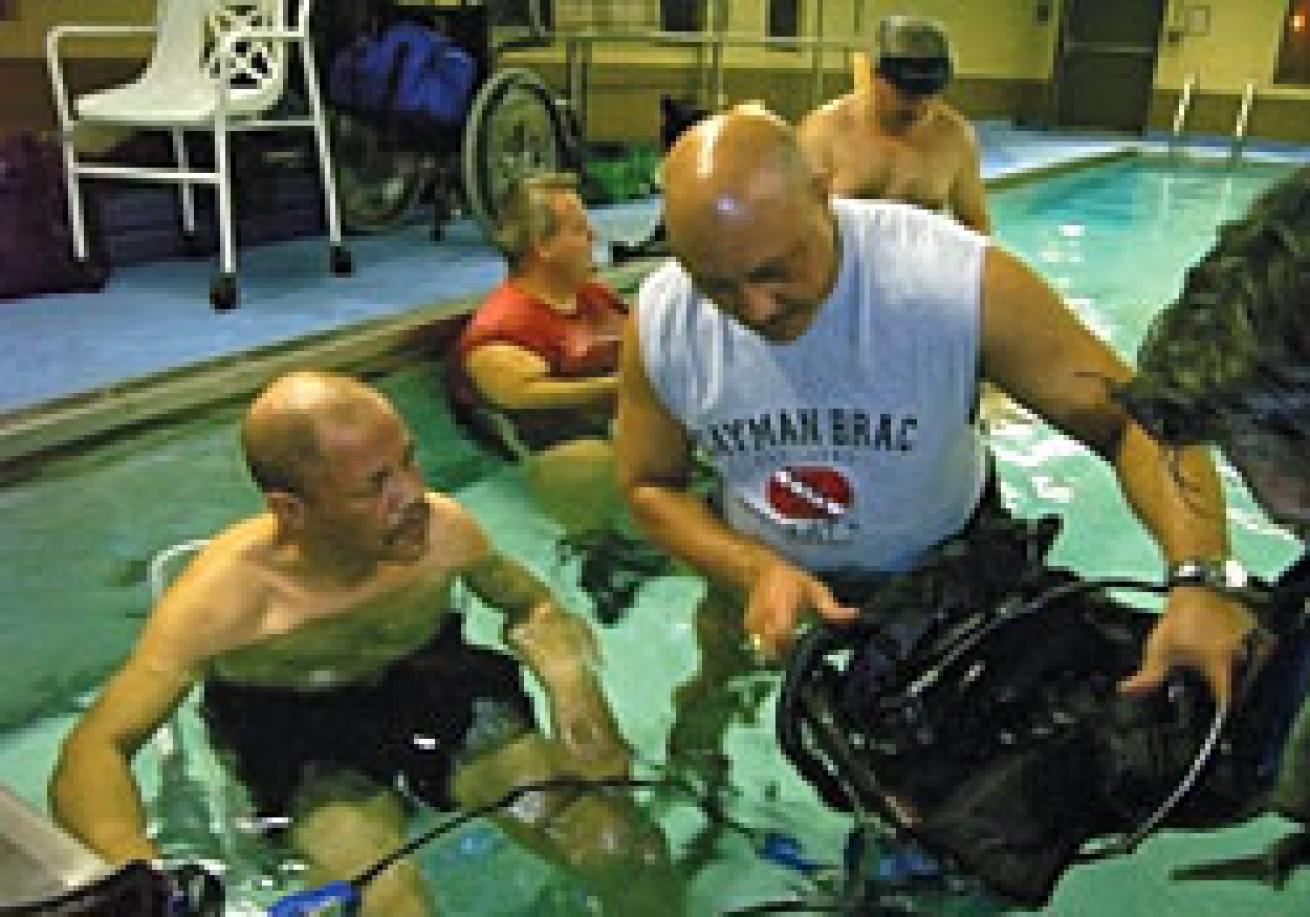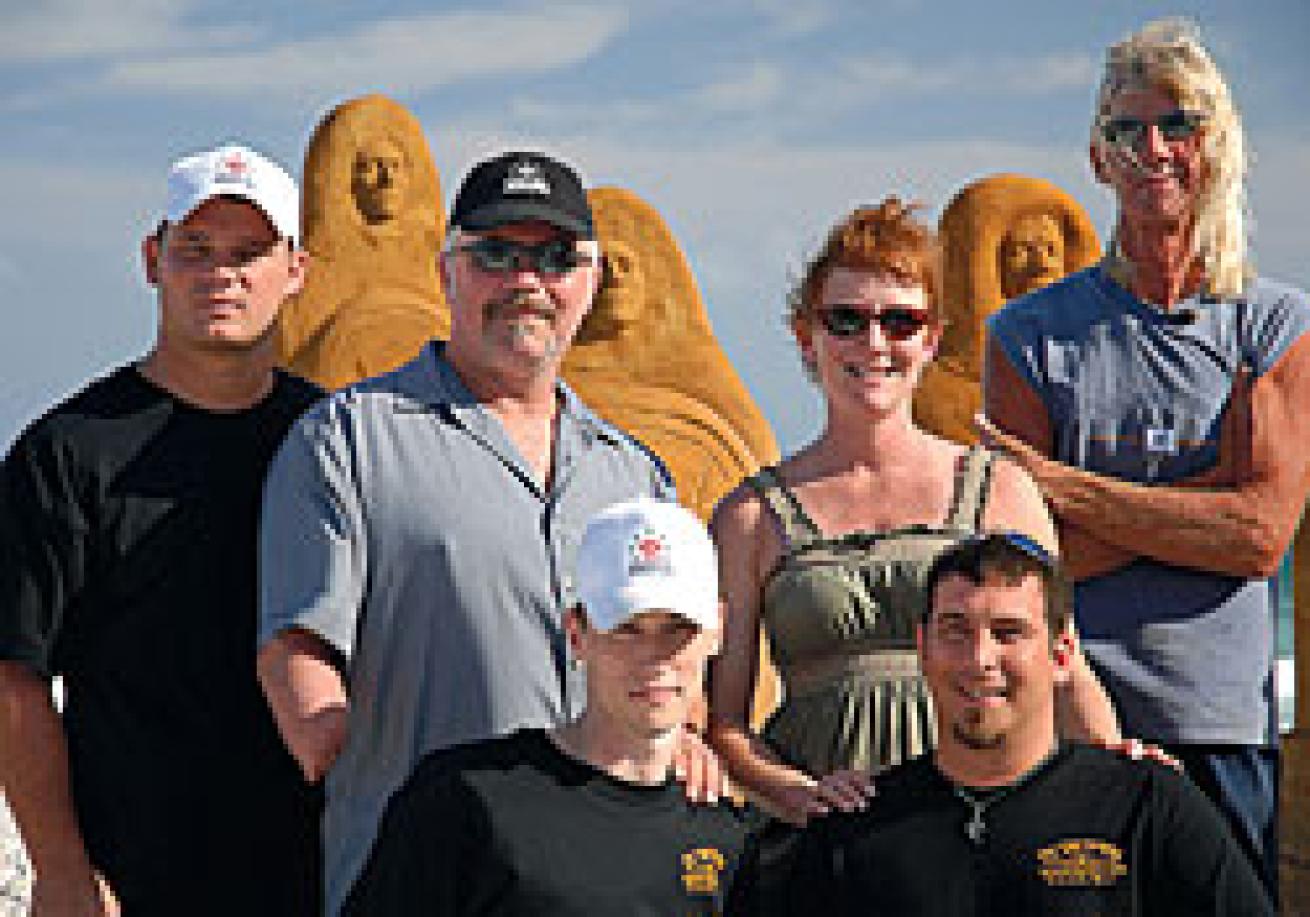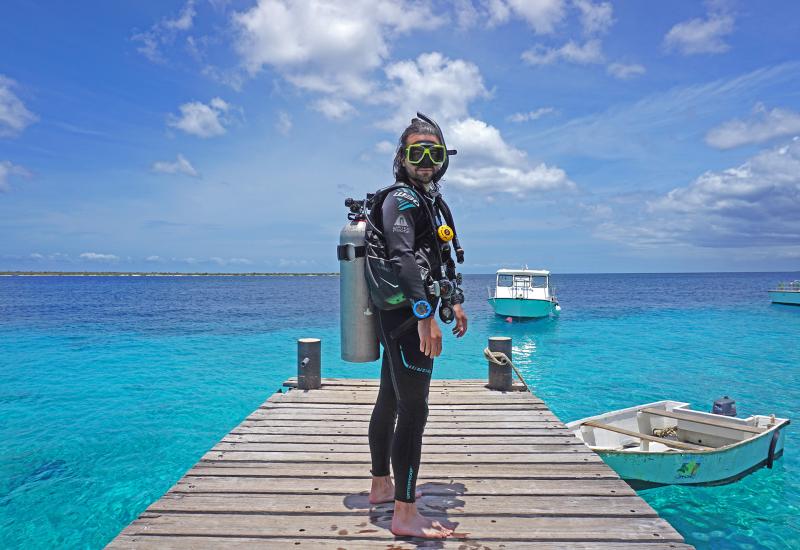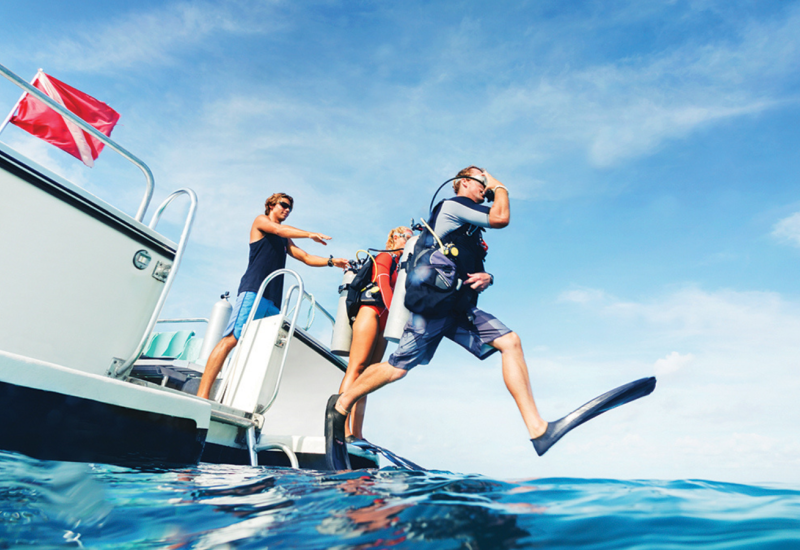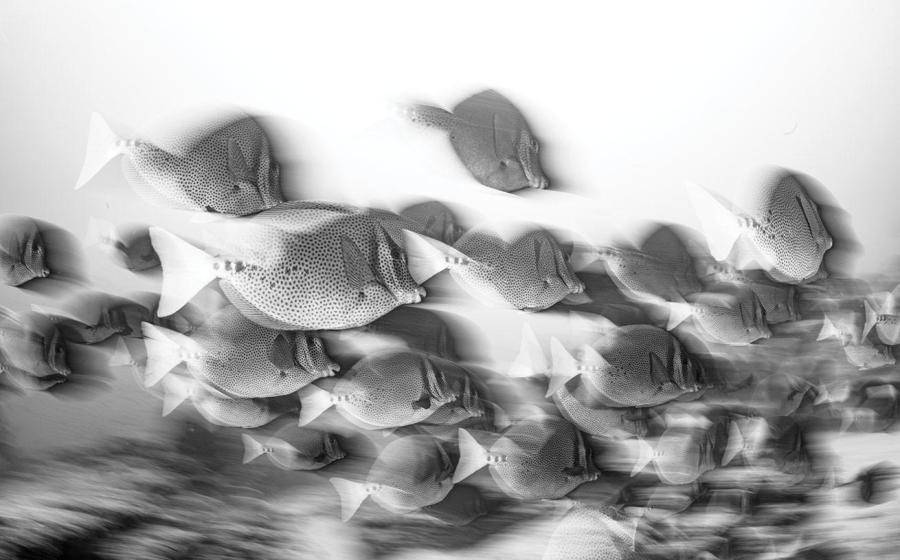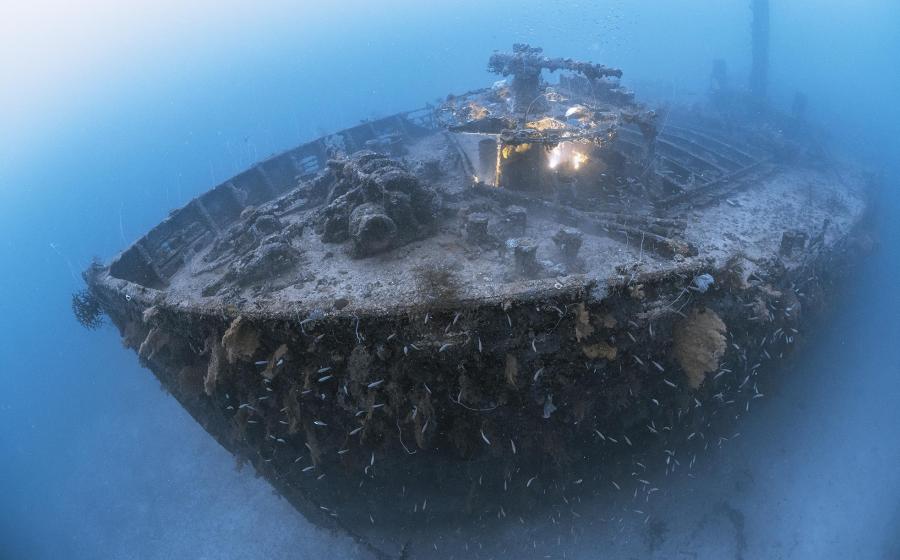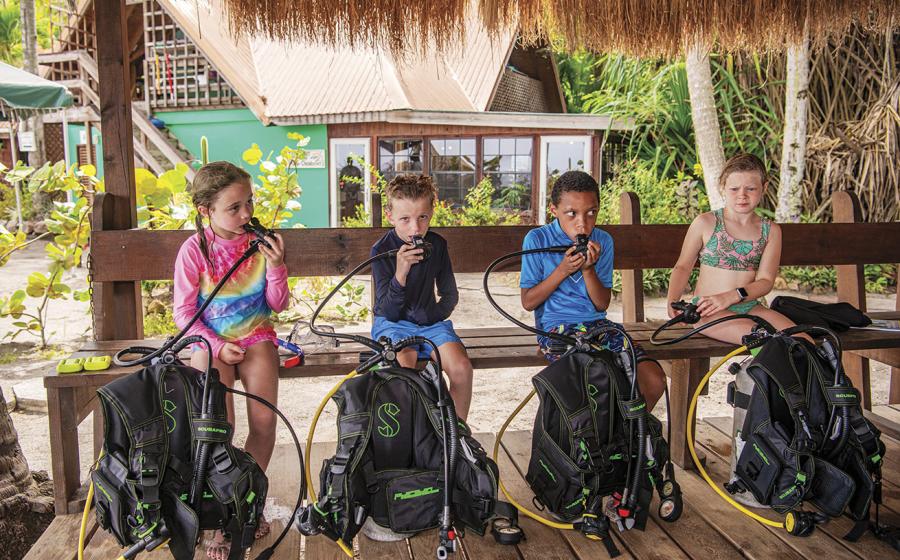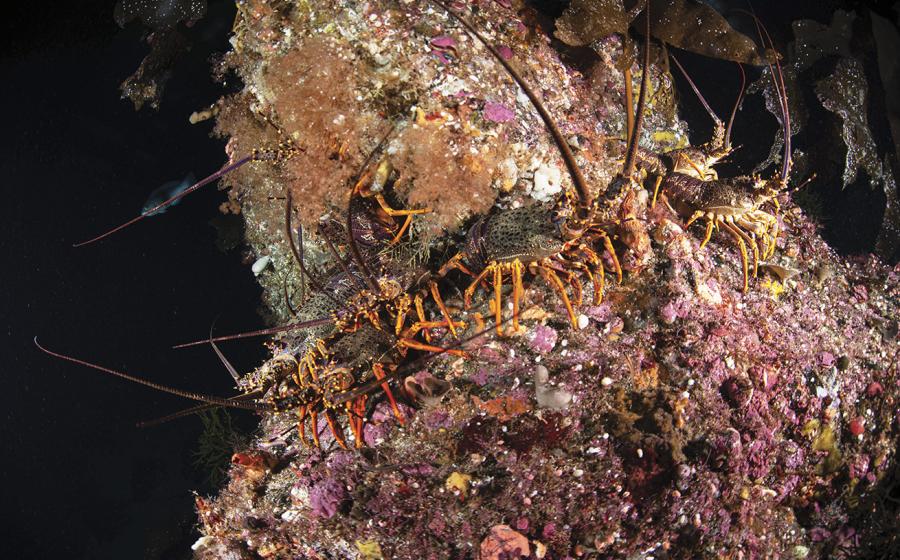Fighting Back

August 2007
By Jennie Lay
Aspen generally conjures up thoughts of snow skiing, not scuba. But each winter during the National Disabled Veterans Winter Sports Clinic, retired U.S. Marine and Handicapped Scuba Association (HSA)-certified diver William White forsakes the famous slopes for a nearby swimming pool. A double amputee and a veteran of the Gulf War, White enjoys sharing the wonder of diving with wounded veterans of Iraq, Afghanistan, Vietnam, Korea and even World War II.
The clinic, one of several around the country, is designed to introduce wounded soldiers and veterans to a variety of sports. The idea is to provide rehabilitation through recreation, and the weightless environment of diving is a uniquely liberating experience, White says. For many, the sense of freedom scuba provides is an important step in fighting back against the pain and frustration of lost limbs, spinal cord injuries, brain injuries and other impairments.
White recalls one fellow veteran, a triple amputee, who entered the water skeptical about diving, but after a morning of turning flips in the deep end, emerged smiling and confident. "These people have such a difficult time on land," White says. "You get them in water, it's neutral and away they go."
In addition to these annual clinics, several nonprofit dive groups now offer America's wounded veterans the chance to try diving free of charge. But with complex medical privacy laws in play, these organizations need your help spreading the word. With that in mind, we're profiling three programs that are helping soldiers discover the lifelong opportunities of diving. Read the stories for inspiration and then, if you know a soldier who could benefit, get the ball rolling by contacting one of the groups (see "For More Information").
Diveheart Military Wounded
Susan Walker, a Chicago dive instructor whose son is a Navy SEAL, became disgruntled with media coverage of the war in Iraq. Then she encountered Diveheart founder Jim Elliott with a group of disabled divers at a local quarry. Learning that Elliott's nonprofit group promotes diving as a source of recreation and therapy for disabled individuals, Walker decided immediately how she would help heal newly disabled soldiers: Diveheart Military Wounded was born.
"I just wanted to do more, and they aren't going to let me go over and fight," Walker says. Instead, she's putting wounded soldiers in the pool. Relying on therapists and veterans groups to spread the word about Diveheart Military Wounded, Walker gave her first five veterans from Hines VA Hospital a scuba experience in January. By April, two of them had already gone on to become certified divers. While Walker works with wounded soldiers near Chicago, she and her base of 15 volunteers are encouraging dive shops around the country with HSA-certified instructors to adopt a veteran, give them a scuba experience and help them get certified.
It's the same model the larger Diveheart organization has followed since it was founded in 2001. Inspired by his father (a disabled WWII veteran) and his daughter (who was born blind), Elliott saw the need for a cost-free consultant to dive shops around the country, helping to get instructors and buddy divers HSA-trained, and promoting scuba opportunities for disabled individuals. "We just want to get disabled divers in the water," Elliott says. Working with wounded soldiers is a natural extension of their work, and veterans are often among the first to embrace scuba. "They're soldiers. They jump in with both feet. They take direction well. And they're not daunted by anything," he says.
Underwater Warriors
Robert Shrode was a 27-year-old Mississippi casino bartender on 9/11. The attack changed everything for him. He joined the Army and went to Iraq. He passed through Najaf, Karballa, Mosul, Baghdad and Fallujah before his Humvee was ambushed and he lost his right arm. After a year in rehab back at Fort Campbell, Ky., Shrode got a call telling him about a chance to try scuba with Underwater Warriors. Now he's advanced-open-water-certified and working to complete his rescue diver certification.
Underwater Warriors grew out of the efforts of Nancy MacPherson, a dive instructor and the self-described "quarry queen" of Kentucky and Tennessee. A little over a year ago, she started encountering so many wounded soldiers coming back from Iraq to Fort Campbell, near her home, that she was spurred to walk in to Blanchfield Army Community Hospital and urge them to let her put injured soldiers on scuba. Now largely based at the Fort Campbell pool, MacPherson and her volunteers run Discover Scuba programs for wounded soldiers and their families, most of whom are still in therapy. They've seen about 20 wounded soldiers through dive certification, including a group of five who went to Cayman Brac for warm-water certification dives in March (see "Heroes on the Brac").
During his time on the island, Shrode chased barracudas, played with stingrays and saw a hammerhead shark swim in the distance. "Diving gives you a lot of freedom. There's no such thing as a handicap when you're underwater," he says. His advice to other wounded veterans: "Keep your head up. Don't let your injury or your handicap stop you. Before all this, I didn't know I'd enjoy scuba. But I love it. Find something you love. Give scuba a try."
J.D. Greer, a retired Green Beret who lost an arm while on civilian diplomatic protection duty for the State Department in Iraq, got so much inspiration from his fellow veterans on the Underwater Warriors trip to Cayman Brac that he plans to continue with certifications for divemaster and instructor, then promote diving rehab for wounded veterans. "With my injury and my attitude, I think I can do something to give them some hope," Greer says.
MacPherson calls Underwater Warriors "a mind, body, spirit program" and a "real boost for wellness." The Veteran's Administration is overwhelmed right now, she says, emphasizing the importance of nonprofit programs like hers for soldiers who are motivated, but need a boost. "When you're focusing on your breathing, you can't focus on the negativity in your life," MacPherson says.
MacPherson has also seen remarkable family connections spark through her scuba programs. She recommends soldiers try diving with a child or spouse as a team-building experience, something special they can enjoy doing together: "It's a sensual thing in the water that they can do together."
Wounded Warrior Project
The power of wounded soldiers diving with their spouses was one of the surprising benefits that volunteers with the Wounded Warrior Project discovered during a dive certification trip to Bonaire last year. The nonprofit Wounded Warrior Project emphasizes rehabilitation through a wide variety of sports for soldiers who have been severely wounded in Iraq and Afghanistan.
Stewart Snyder, a HSA-certified course director, has been diving with disabled people for 14 years, but he says he'd never seen anything quite like the power of these relationships. It started when Snyder ran the shallow Discover Scuba pool at a military disabled watersports festival in Rockaway, N.Y. He helped give 35 soldiers a taste of scuba. And at the end of the day, 10 were anxious for more bubbles. One of the firemen who'd been volunteering for the scuba experience offered his home pool, and the group moved right into two days of scuba classes and water work. Captain Don's Habitat donated a warm-water week on Bonaire to make their checkout dives.
"The women were un-friggin' believable, how they take care of them," Snyder says. But he saw a magnificent role reversal after the soldiers were certified and their wives decided to jump in the water for a try. "Overnight, the wounded warriors became the caretakers again. It was unbelievable to see them under the water together, as a couple," Snyder says.
In a partnership between Disabled Sports USA and Wounded Warrior Project, scuba experiences are available for soldiers at Walter Reed Army Medical Center. Wounded Warrior Project makes its second certification trip to Bonaire in August. "This is the greatest thing that's ever happened to handicapped scuba diving," Snyder says. "Finally, there's a movement to promote it."
For More Information
National Disabled Veterans Winter Sports Clinic
www.wintersportsclinic.org
Diveheart Military Wounded
www.diveheart.org
Underwater Warriors
www.underwaterwarriors.org
Wounded Warrior Project
www.woundedwarriorproject.org
Handicapped Scuba Association
www.hsascuba.com
Heroes on the Brac
Cayman Brac recently welcomed five Underwater Warriors for a week of camaraderie and unforgettable diving. I was fortunate to be there and witness the courage and incredible spirit of the participants and share in their excitement as they discovered the lifelong opportunities of scuba.
J.D. Greer spent 21 years in the Army, a good portion of that time in the Special Forces. Less than a year ago, while working for a civilian contractor in Iraq, his vehicle was damaged by an explosive formed penetrator (EFP). J.D. lost his right arm below the elbow, but somehow maintained control of the vehicle without any further injuries to his detail. Like J.D., Robert Shrode lost his right arm in Iraq, but he prefers not to use a prosthetic device. Another member of the dive team is Erik Roberts. Diving makes Erik's leg feel better after suffering major nerve damage and lost tissue from a roadside bomb. Lori Hill was flying a helicopter in the war zone, when it was hit by small arms fire and it lost hydraulics, but she was able to land it. Lori was awarded the Distinguished Flying Cross and a Purple Heart. Another member of the team is Bryan Price; he lost the use of his legs after shrapnel tore into his back and badly damaged his spine.
All these Warriors spent a week diving in the Brac, earning their open water certifications, and having a great time doing it. They were hosted on-island by Craig Burhart of In Depth Watersports, who offered his boat and crew, his time, and even paid for the fuel. And as an added bonus, a local artist who goes by the name of Foots cast statues with the likeness of each Warrior, which will be added to the underwater sculpture park/dive site known as Atlantis. When Foots was working on Bryan's statue, he asked him how tall he was. Bryan responded that in his wheelchair he was about, four feet, six inches. "No, how tall were you before you were wounded?" asked Foots. "In Atlantis, you will be standing forever." --John Chatterton
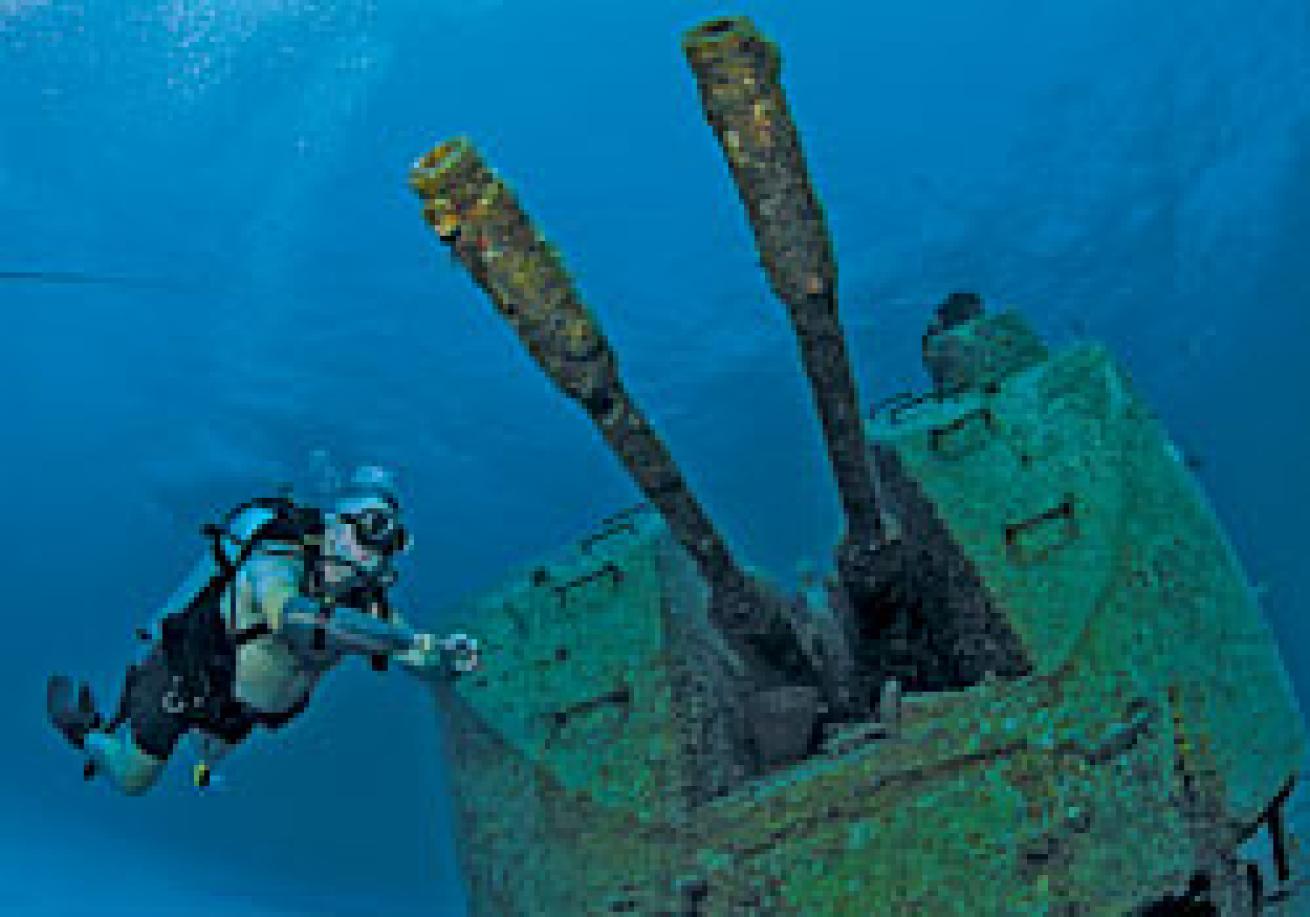
August 2007
By Jennie Lay
Aspen generally conjures up thoughts of snow skiing, not scuba. But each winter during the National Disabled Veterans Winter Sports Clinic, retired U.S. Marine and Handicapped Scuba Association (HSA)-certified diver William White forsakes the famous slopes for a nearby swimming pool. A double amputee and a veteran of the Gulf War, White enjoys sharing the wonder of diving with wounded veterans of Iraq, Afghanistan, Vietnam, Korea and even World War II.
The clinic, one of several around the country, is designed to introduce wounded soldiers and veterans to a variety of sports. The idea is to provide rehabilitation through recreation, and the weightless environment of diving is a uniquely liberating experience, White says. For many, the sense of freedom scuba provides is an important step in fighting back against the pain and frustration of lost limbs, spinal cord injuries, brain injuries and other impairments.
White recalls one fellow veteran, a triple amputee, who entered the water skeptical about diving, but after a morning of turning flips in the deep end, emerged smiling and confident. "These people have such a difficult time on land," White says. "You get them in water, it's neutral and away they go."
In addition to these annual clinics, several nonprofit dive groups now offer America's wounded veterans the chance to try diving free of charge. But with complex medical privacy laws in play, these organizations need your help spreading the word. With that in mind, we're profiling three programs that are helping soldiers discover the lifelong opportunities of diving. Read the stories for inspiration and then, if you know a soldier who could benefit, get the ball rolling by contacting one of the groups (see "For More Information").
Diveheart Military Wounded
Susan Walker, a Chicago dive instructor whose son is a Navy SEAL, became disgruntled with media coverage of the war in Iraq. Then she encountered Diveheart founder Jim Elliott with a group of disabled divers at a local quarry. Learning that Elliott's nonprofit group promotes diving as a source of recreation and therapy for disabled individuals, Walker decided immediately how she would help heal newly disabled soldiers: Diveheart Military Wounded was born.
"I just wanted to do more, and they aren't going to let me go over and fight," Walker says. Instead, she's putting wounded soldiers in the pool. Relying on therapists and veterans groups to spread the word about Diveheart Military Wounded, Walker gave her first five veterans from Hines VA Hospital a scuba experience in January. By April, two of them had already gone on to become certified divers. While Walker works with wounded soldiers near Chicago, she and her base of 15 volunteers are encouraging dive shops around the country with HSA-certified instructors to adopt a veteran, give them a scuba experience and help them get certified.
It's the same model the larger Diveheart organization has followed since it was founded in 2001. Inspired by his father (a disabled WWII veteran) and his daughter (who was born blind), Elliott saw the need for a cost-free consultant to dive shops around the country, helping to get instructors and buddy divers HSA-trained, and promoting scuba opportunities for disabled individuals. "We just want to get disabled divers in the water," Elliott says. Working with wounded soldiers is a natural extension of their work, and veterans are often among the first to embrace scuba. "They're soldiers. They jump in with both feet. They take direction well. And they're not daunted by anything," he says.
Underwater Warriors
Robert Shrode was a 27-year-old Mississippi casino bartender on 9/11. The attack changed everything for him. He joined the Army and went to Iraq. He passed through Najaf, Karballa, Mosul, Baghdad and Fallujah before his Humvee was ambushed and he lost his right arm. After a year in rehab back at Fort Campbell, Ky., Shrode got a call telling him about a chance to try scuba with Underwater Warriors. Now he's advanced-open-water-certified and working to complete his rescue diver certification.
Underwater Warriors grew out of the efforts of Nancy MacPherson, a dive instructor and the self-described "quarry queen" of Kentucky and Tennessee. A little over a year ago, she started encountering so many wounded soldiers coming back from Iraq to Fort Campbell, near her home, that she was spurred to walk in to Blanchfield Army Community Hospital and urge them to let her put injured soldiers on scuba. Now largely based at the Fort Campbell pool, MacPherson and her volunteers run Discover Scuba programs for wounded soldiers and their families, most of whom are still in therapy. They've seen about 20 wounded soldiers through dive certification, including a group of five who went to Cayman Brac for warm-water certification dives in March (see "Heroes on the Brac").
During his time on the island, Shrode chased barracudas, played with stingrays and saw a hammerhead shark swim in the distance. "Diving gives you a lot of freedom. There's no such thing as a handicap when you're underwater," he says. His advice to other wounded veterans: "Keep your head up. Don't let your injury or your handicap stop you. Before all this, I didn't know I'd enjoy scuba. But I love it. Find something you love. Give scuba a try."
J.D. Greer, a retired Green Beret who lost an arm while on civilian diplomatic protection duty for the State Department in Iraq, got so much inspiration from his fellow veterans on the Underwater Warriors trip to Cayman Brac that he plans to continue with certifications for divemaster and instructor, then promote diving rehab for wounded veterans. "With my injury and my attitude, I think I can do something to give them some hope," Greer says.
MacPherson calls Underwater Warriors "a mind, body, spirit program" and a "real boost for wellness." The Veteran's Administration is overwhelmed right now, she says, emphasizing the importance of nonprofit programs like hers for soldiers who are motivated, but need a boost. "When you're focusing on your breathing, you can't focus on the negativity in your life," MacPherson says.
MacPherson has also seen remarkable family connections spark through her scuba programs. She recommends soldiers try diving with a child or spouse as a team-building experience, something special they can enjoy doing together: "It's a sensual thing in the water that they can do together."
Wounded Warrior Project
The power of wounded soldiers diving with their spouses was one of the surprising benefits that volunteers with the Wounded Warrior Project discovered during a dive certification trip to Bonaire last year. The nonprofit Wounded Warrior Project emphasizes rehabilitation through a wide variety of sports for soldiers who have been severely wounded in Iraq and Afghanistan.
Stewart Snyder, a HSA-certified course director, has been diving with disabled people for 14 years, but he says he'd never seen anything quite like the power of these relationships. It started when Snyder ran the shallow Discover Scuba pool at a military disabled watersports festival in Rockaway, N.Y. He helped give 35 soldiers a taste of scuba. And at the end of the day, 10 were anxious for more bubbles. One of the firemen who'd been volunteering for the scuba experience offered his home pool, and the group moved right into two days of scuba classes and water work. Captain Don's Habitat donated a warm-water week on Bonaire to make their checkout dives.
"The women were un-friggin' believable, how they take care of them," Snyder says. But he saw a magnificent role reversal after the soldiers were certified and their wives decided to jump in the water for a try. "Overnight, the wounded warriors became the caretakers again. It was unbelievable to see them under the water together, as a couple," Snyder says.
In a partnership between Disabled Sports USA and Wounded Warrior Project, scuba experiences are available for soldiers at Walter Reed Army Medical Center. Wounded Warrior Project makes its second certification trip to Bonaire in August. "This is the greatest thing that's ever happened to handicapped scuba diving," Snyder says. "Finally, there's a movement to promote it."
For More Information
National Disabled Veterans Winter Sports Clinic
www.wintersportsclinic.org
Diveheart Military Wounded
www.diveheart.org
Underwater Warriors
www.underwaterwarriors.org
Wounded Warrior Project
www.woundedwarriorproject.org
Handicapped Scuba Association
www.hsascuba.com
Heroes on the Brac
Cayman Brac recently welcomed five Underwater Warriors for a week of camaraderie and unforgettable diving. I was fortunate to be there and witness the courage and incredible spirit of the participants and share in their excitement as they discovered the lifelong opportunities of scuba.
J.D. Greer spent 21 years in the Army, a good portion of that time in the Special Forces. Less than a year ago, while working for a civilian contractor in Iraq, his vehicle was damaged by an explosive formed penetrator (EFP). J.D. lost his right arm below the elbow, but somehow maintained control of the vehicle without any further injuries to his detail. Like J.D., Robert Shrode lost his right arm in Iraq, but he prefers not to use a prosthetic device. Another member of the dive team is Erik Roberts. Diving makes Erik's leg feel better after suffering major nerve damage and lost tissue from a roadside bomb. Lori Hill was flying a helicopter in the war zone, when it was hit by small arms fire and it lost hydraulics, but she was able to land it. Lori was awarded the Distinguished Flying Cross and a Purple Heart. Another member of the team is Bryan Price; he lost the use of his legs after shrapnel tore into his back and badly damaged his spine.
All these Warriors spent a week diving in the Brac, earning their open water certifications, and having a great time doing it. They were hosted on-island by Craig Burhart of In Depth Watersports, who offered his boat and crew, his time, and even paid for the fuel. And as an added bonus, a local artist who goes by the name of Foots cast statues with the likeness of each Warrior, which will be added to the underwater sculpture park/dive site known as Atlantis. When Foots was working on Bryan's statue, he asked him how tall he was. Bryan responded that in his wheelchair he was about, four feet, six inches. "No, how tall were you before you were wounded?" asked Foots. "In Atlantis, you will be standing forever." --John Chatterton
